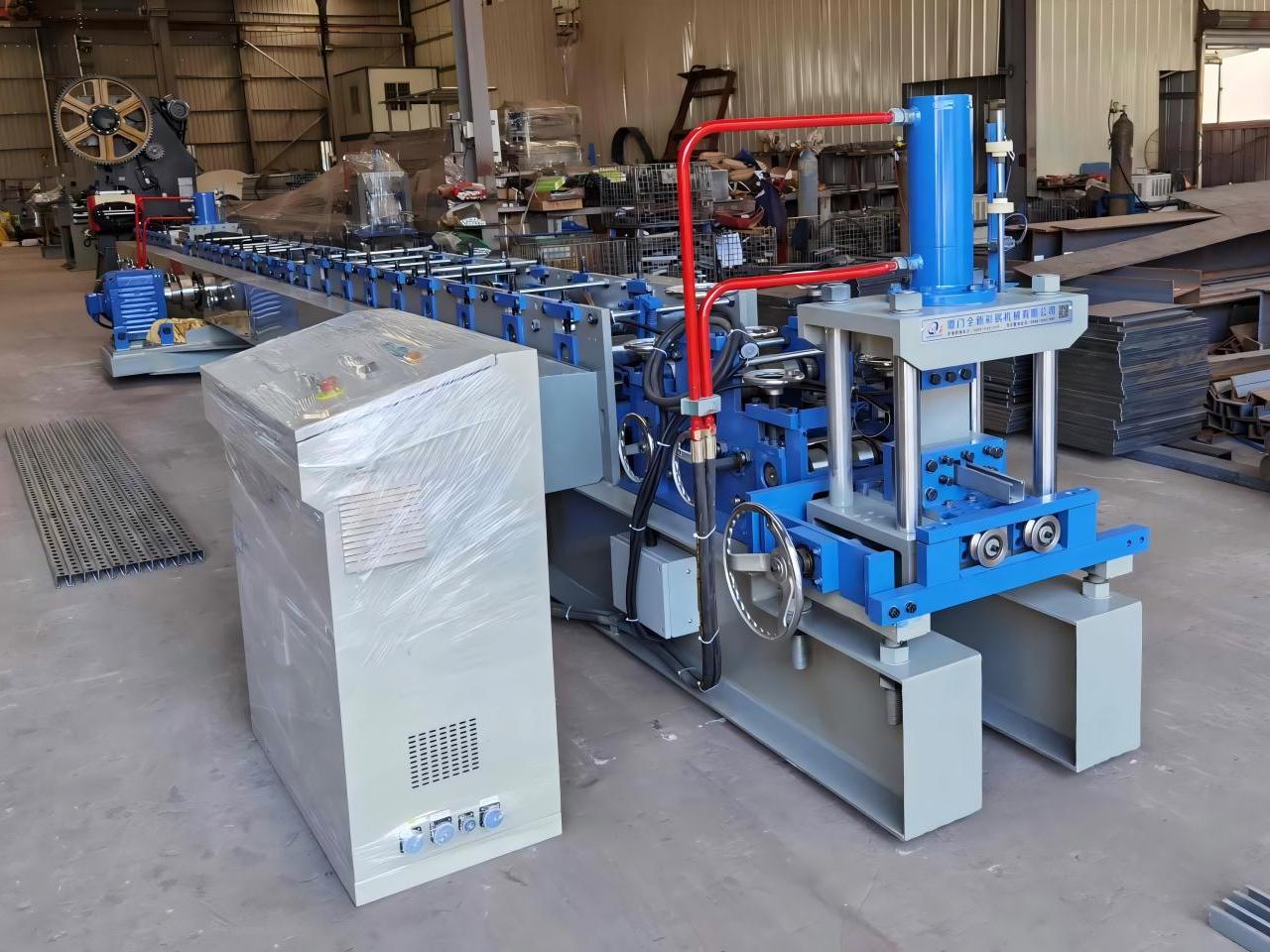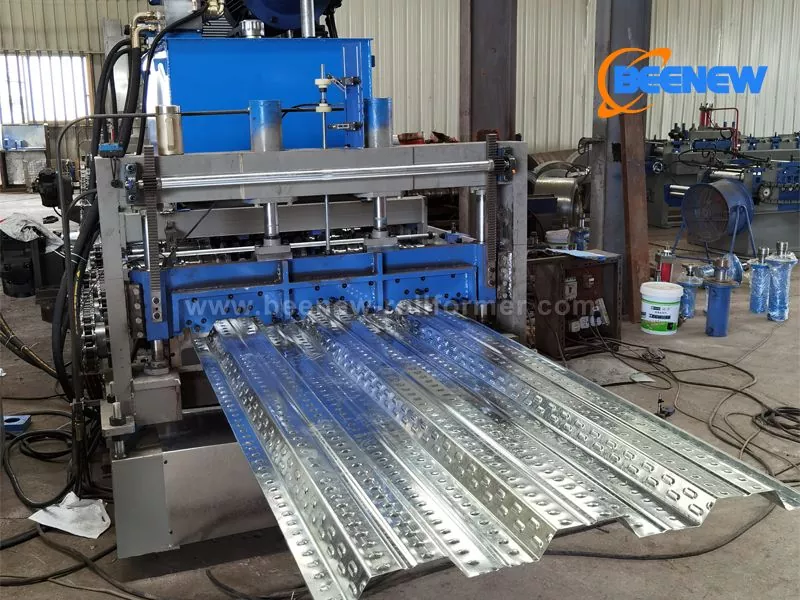Deck Roll Forming Machine
Send Inquiry
The Beenew Deck Roll Forming Machine excels in crafting cold-rolled corrugated steel plates, renowned for their robust construction and secure support by steel beams. These plates are a staple in contemporary building roofing and flooring, bolstering structural integrity, stability, and longevity. Employing intricate roll-forming techniques, the machine guarantees impeccable accuracy in dimensions and consistent corrugation patterns, catering to the intricate needs of architectural blueprints. This method of production, both efficient and precise, underpins the construction sector with superior materials, fostering technological innovation and progress.
Beenew Deck Roll Forming Machine Introduction
The Beenew Deck Roll Forming Machine masterfully crafts floor decking panels, universally adopted in building roofing and flooring systems, providing crucial structural reinforcement. These corrugated steel sheets are engineered to effortlessly sustain the weight of concrete layers or insulation barriers, fostering a robust structural backbone that significantly bolsters the entire edifice's stability. Their intricate wave formations not only amplify stability but also facilitate even load distribution, optimizing the strength-to-weight proportion. Consequently, structures incorporating these decking systems exhibit heightened durability and resistance to environmental stressors, making them a sought-after solution in contemporary construction.
Beenew Deck Roll Forming Machine Parameter
|
Item |
Parameters |
|
Material Thickness |
0.8-1.2mm |
|
Driving Motor |
18.5kw |
|
Forming Station |
23 |
|
Roller Material |
GCr15 |
|
Shaft Diameter |
85mm |
|
Shaft Material |
45# steel |
|
Hydraulic Station Power |
5.5kw |
|
Cutting Length Precision |
±2mm |
|
Control System |
PLC |
|
Machine Dimension |
12902*1700*1700mm |
Beenew Deck Roll Forming Machine Feature and Application
The Beenew Deck Roll Forming Machine excels in unparalleled production efficiency, rapidly converting raw steel into intricately corrugated shapes tailored to exact specifications. This swift precision dramatically shortens construction cycles, empowering builders to meet tight deadlines with ease. By automating the production line and minimizing manual interventions, the machine augments overall productivity, slashing lead times and expenses compared to conventional manufacturing practices. Moreover, the uniform quality of the decking panels guarantees seamless integration into the building's framework, fostering a seamless, efficient, and dependable construction journey from inception to completion.
The Beenew Deck Roll Forming Machine, a true multi-tasker, churns out decking plates with broad applicability across various sectors. It not only supplies vital components to building supply stores but also powers manufacturing factories' production lines. Additionally, it addresses the specific requirements of mechanical maintenance workshops. In construction, these precisely crafted decking panels form the sturdy foundation of structures, bolstering their stability and efficiency. Its cross-industry adaptability underscores the machine's pivotal role in shaping the modern construction landscape.

Beenew Deck Roll Forming Machine Detials
The Beenew Deck Roll Forming Machine stands as a testament to engineering prowess, utilizing a meticulous 36-stage forming process to guarantee decking plates of unparalleled quality. Fueled by a formidable dual-motor configuration, totaling 45KW of raw power, it achieves unparalleled performance and efficiency. These muscular motors, offering abundant torque and speed, effortlessly navigate the intricate forming stages, resulting in decking plates that not only excel in structural integrity but also in visual appeal. Its fusion of advanced forming technology and a potent drivetrain caters seamlessly to the stringent demands of diverse industries, ranging from building material providers to construction professionals.

FAQ
1. What is the minimum bend radius for roll forming?
The minimum bend radius should be three to four times the thickness of the steel, depending on its grade, to ensure that fracture is avoided during the bending process.
2. What are the parameters of rolling machine?
The parameters, inclusive of stress, strain rate, torque, hardness, and power demand, are fine-tuned based on specific input parameters like reduction percentage, roller velocity, roller diameter, and the coefficient of friction, to achieve optimal performance.
3. What type of process is roll forming?
Roll forming is a continuous metal shaping process that involves taking sheet, strip, or coil material and gradually bending or forming it into a continuous cross-sectional profile as it passes through a series of successively positioned pairs of rolls. Each set of rolls modifies the material's shape incrementally, ultimately achieving the desired cross-section upon completion of the process.
 English
English lugha ya Kiswahili
lugha ya Kiswahili  Монгол хэл
Монгол хэл  Español
Español  Português
Português  русский
русский  Français
Français  日本語
日本語  Italiano
Italiano  한국어
한국어  Malay
Malay  हिन्दी
हिन्दी  Türkçe
Türkçe  العربية
العربية  Indonesia
Indonesia  تمل
تمل  український
український  فارسی
فارسی  Latine
Latine  Azərbaycan
Azərbaycan 
















